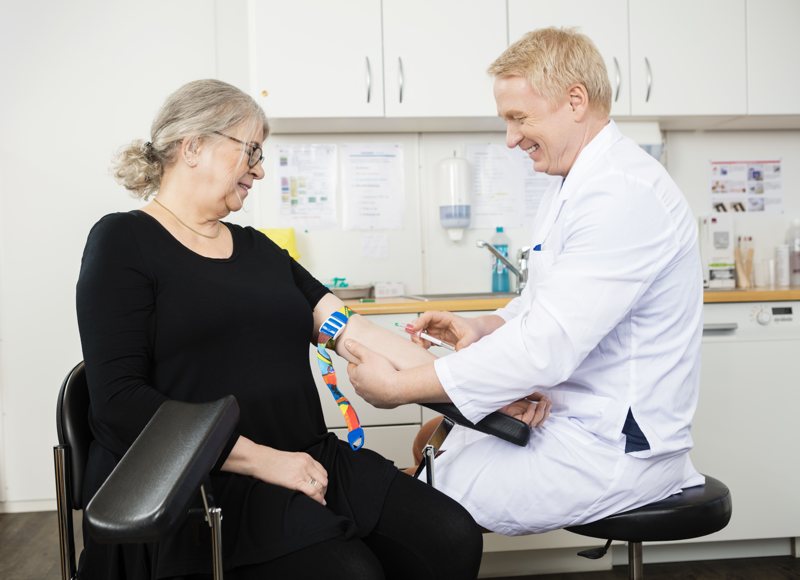Important Aspects to Take Into Consideration When Selecting one of the most Suitable Medical Institution Curriculum for You
Selecting one of the most fitting clinical school educational program is a crucial decision that can greatly influence your educational trip and future career course. As striving doctor, the option of curriculum ought to align with your individual learning style and career ambitions. Nonetheless, beyond these first factors to consider, different vital variables enter play when making this option. By exploring the nuances of mentor methods, curriculum versatility, and medical exposure possibilities, an extra thorough understanding of what makes a curriculum suitable for you emerges. Let's explore these essential elements that can shape your medical education and eventually, your expert trajectory.
Personal Understanding Style

Clinical institutions that provide varied teaching approaches and resources can fit numerous finding out styles, fostering a comprehensive and vibrant educational atmosphere. Eventually, understanding personal discovering choices empowers students to make enlightened choices regarding their clinical education, establishing a strong structure for their future jobs in medical care.
Occupation Goals Placement

Furthermore, straightening career goals with the medical college educational program can likewise boost inspiration and interaction throughout the educational journey. They are extra likely to remain focused and devoted to their studies when students see the straight importance of their coursework to their future job. Consequently, when selecting a medical institution educational program, it is critical to very carefully consider how well it aligns with one's profession purposes to ensure an effective and meeting professional path.
Mentor Methodologies
Thinking about the positioning of career purposes with the chosen clinical school educational program, an examination of the teaching methodologies used ends up being crucial fit the learning experience. The effectiveness of a medical institution educational program heavily depends on the training methodologies used by the institution. Various teaching approaches, such as talks, small seminar, problem-based understanding, simulation-based training, and hands-on scientific experience, can considerably impact exactly how well trainees comprehend and retain info.
Simulation-based training enables trainees to practice medical abilities in a regulated environment before interacting with actual people. Hands-on medical experience offers a firsthand understanding of patient treatment and medical methods.
When choosing a clinical college curriculum, aiming students need to consider the training approaches utilized to guarantee that their understanding preferences and staminas line up with the academic approach of the establishment.
Curriculum Versatility
When evaluating medical college programs, analyzing the degree of curriculum adaptability is crucial for possible trainees seeking a customized educational experience. Curriculum adaptability describes the level to which pupils can individualize their learning courses within the medical school educational program. A curriculum that provides versatility enables students to seek their interests, focus on locations where they need extra assistance, and participate in finding out experiences that line up with their profession objectives.

Possible clinical students need to think about how a medical school's educational program versatility lines up with their discovering preferences, job aspirations, and individual goals. By choosing a program that offers the appropriate equilibrium of structure and adaptability, trainees can optimize their educational experience and prepare themselves for successful careers in medication.
Professional Direct Exposure Opportunities
Exploring the practical application of medical expertise, medical exposure possibilities play an essential duty in forming a detailed medical education and learning. These chances offer trainees with very useful hands-on experience in genuine healthcare setups, enabling them to bridge the space between theory and method. When thinking about medical institution curricula, the top quality and quantity of scientific exposure must be meticulously reviewed.
Effective professional exposure must use a diverse variety of experiences across numerous specializeds, guaranteeing that trainees are revealed to various medical scenarios and patient demographics. Exposure to outpatient facilities, inpatient wards, medical theaters, and emergency situation divisions can assist students establish an all-round understanding of various aspects of healthcare distribution. In addition, possibilities for community-based treatment and interactions with underserved populaces can cultivate a much deeper appreciation for the social determinants of health and ucd undergraduate courses wellness.
Additionally, the visibility of helpful professors and coaches throughout these scientific experiences can dramatically enhance the knowing process. Faculty support and useful feedback can aid trainees mirror on their professional experiences, determine locations for enhancement, and improve their professional skills and decision-making capacities (Northeast Medical Institute CNA Classes Near me Stamford). Generally, robust medical direct exposure possibilities are essential for preparing future medical professionals to supply top quality patient treatment efficiently
Conclusion
To conclude, when picking a medical school educational program, it is important to consider your individual knowing style, alignment with occupation goals, instructing techniques, educational program flexibility, and medical exposure chances. These elements play a critical function in identifying the most suitable program for your professional and educational growth. Make certain to completely assess each aspect to make an educated choice that will best support your growth in the medical field.
Understanding one's personal knowing design is vital when choosing a clinical institution educational program. By identifying one's discovering style motorsport engineering degree early on, aspiring medical pupils can strategically select an educational program that provides to their staminas, ultimately enhancing their understanding experience and academic success.
When evaluating clinical college programs, analyzing the degree of curriculum adaptability is important for possible trainees looking for a customized instructional experience. Educational program flexibility refers to the level to which students can individualize their learning courses within the clinical school curriculum.In conclusion, when carleton courses picking a medical school educational program, it is important to consider your individual understanding design, positioning with career purposes, instructing techniques, curriculum versatility, and clinical direct exposure possibilities.